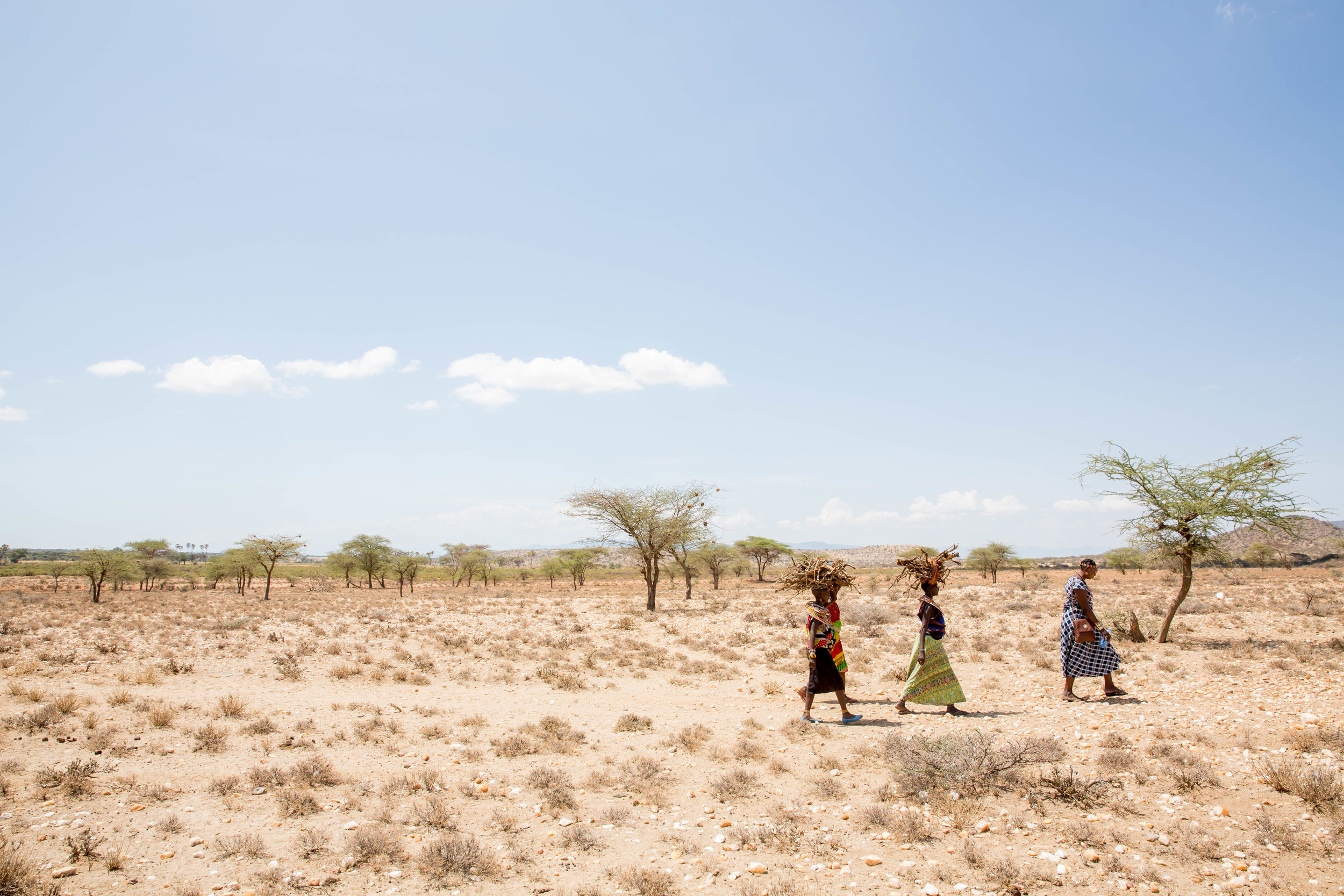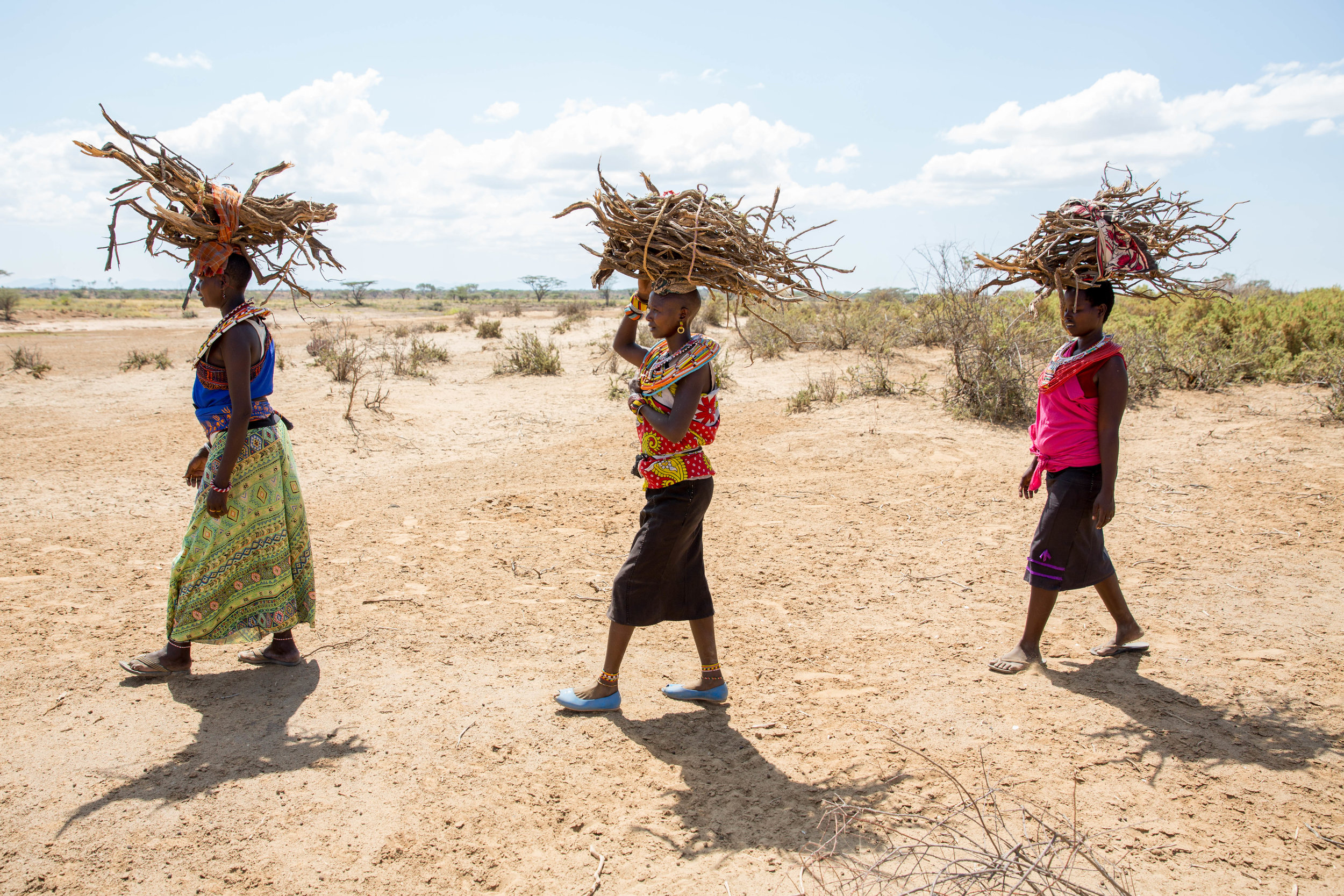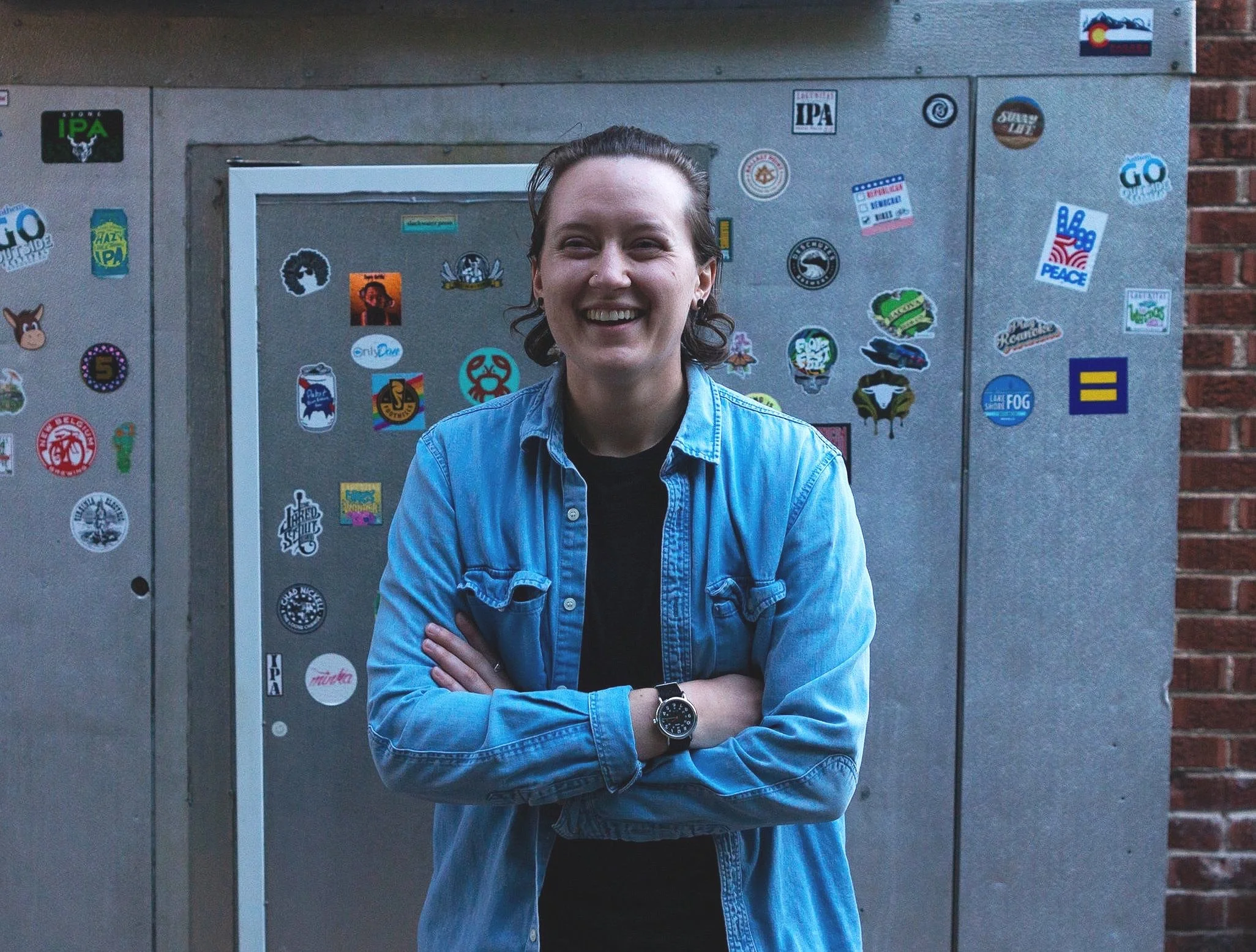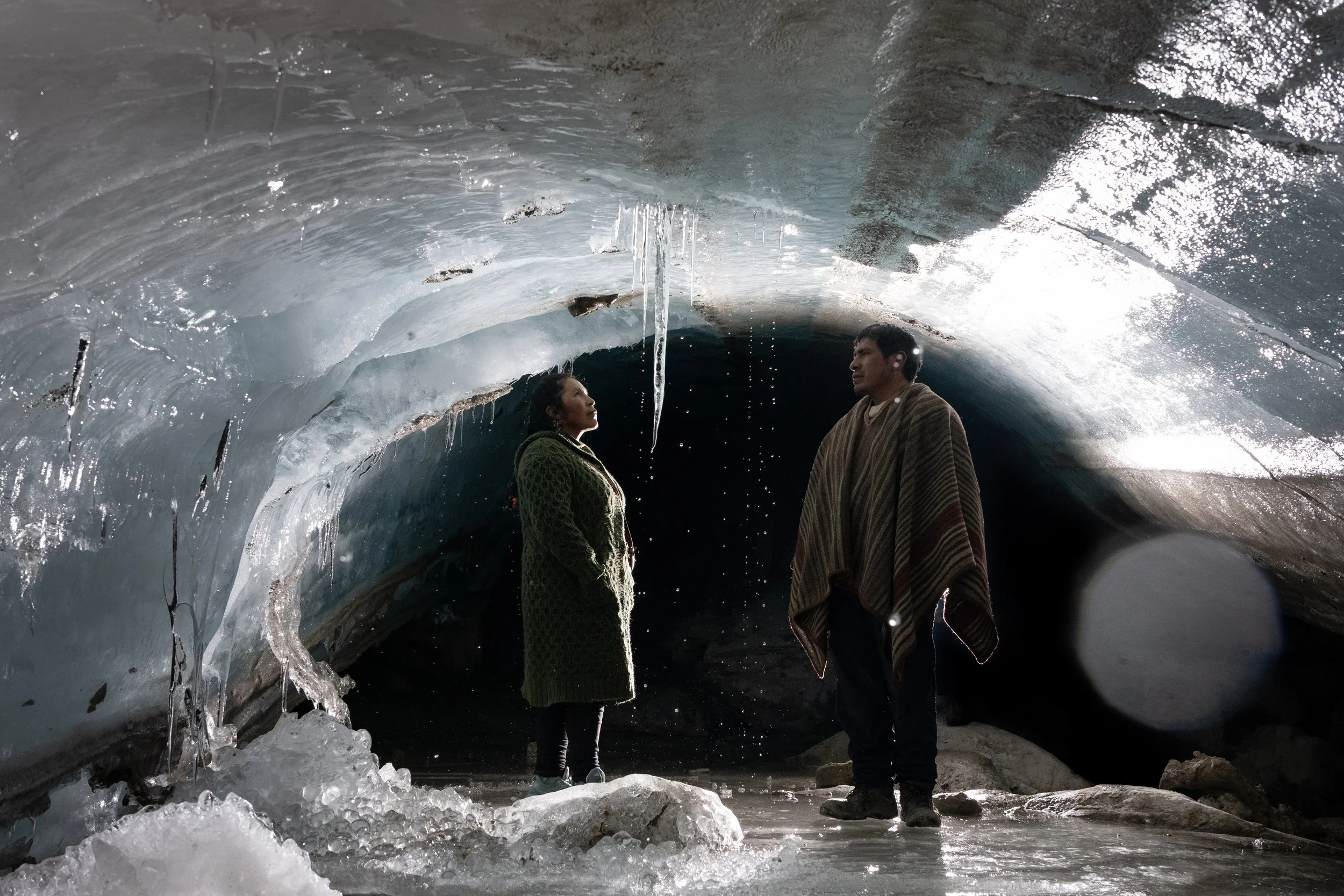Photo by Kelly Schovanek
Female genital mutilation (FGM) was officially banned in Kenya in 2011. However, according to the World Health Organization, it is estimated that 3 million girls are still at risk each year, particularly within rural communities where policing is scarce.
FGM is an invasive and cruel procedure performed on women and girls with no proven medical benefits. Rather, FGM is the result of long-withstanding patriarchal ideologies, and a world that disregards the bodily autonomy of women and girls. A report published by UNICEF in 2016 shows that more than 200 million women and girls have undergone this procedure across 30 countries, concentrated in Africa, the Middle East, and Asia. It is estimated that 92 million girls 10 years old and above, have undergone female genital mutilation in Africa alone.
Photo by Kelly Schovanek
Samuel Siriria Leadismo lives in Archer’s Post, a settlement located in the south of Kenya’s Samburu County and home to the Samburu people, a semi-nomadic pastoralist tribe related to the Maasai. Leadismo, a Samburu warrior, says his biggest concern is how to prevent his younger sisters from being cut. Like many other towns and villages in Samburu and Maasai Mara, this community is traditionally dominated by a patriarchal system where elders, village chiefs, and religious leaders make decisions about women’s sexual and reproductive health.
Before Leadismo’s mother passed away when he was 25, she asked him to protect his sisters; to make sure they did not undergo FGM, and receive an education. “She asked me to guide and educate my younger sisters, and to fight for the rights of all girls to enjoy the opportunities she didn’t have. I’m honoured to fulfill my mother’s wishes through the work I do at Pastoralist Child Foundation,” he said. In 2012, Leadismo and Sayydah Garrett teamed up to create Pastoralist Child Foundation (PCF), a non-profit organization that serves to provide sexual and reproductive health education to the youth, adults, and elders of the community; while bringing awareness to the issue of FGM and child marriage. With their team of educators, doctors, nurses, and social workers, they provide workshops on teen pregnancy, child marriage, FGM, HIV/AIDS, gender-based violence, sexual and reproductive health, and the importance of education.
Samuel Leadismo, founder and director of Pastoralist Child Foundation, holds a seminar to discuss the problems involved with female genital mutilation, and the importance of education in combating the harmful practice.
Photo by Kelly Schovanek
Within Samburu and Maasai Mara counties, the rate of female genital mutilation is 95 percent, among the highest in the country. Garrett says that, although the women do not want their daughters to have this procedure done, the men insist that the practice continue. Traditionally the procedure is believed to lower a girl’s libido and negate any temptation to have sex outside of marriage. Therefore, FGM is considered to play an essential role in the proper upbringing of young girls, preparing them for adulthood and ultimately, marriage. In reality, FGM is a traumatic procedure, with numerous risks including cystic fibrosis, painful menstruation and intercourse, urinary tract infections, an increase in infant mortality, and even death.
While on assignment in Archer’s Post, photographer Kelly Schovanek met with Mikka, a primary school teacher in the area. When asked if she thought the practice would likely end by the next generation, Mikka said “[I] hope so...but we also do not have a generation to spare, this was happening now, and it needed to end now.”
Mikka, a primary school teacher, emphasizes the importance of a good education to help youth access a better future.
Photo by Kelly Schovanek
Fellow members of the Samburu tribe initially warned Leadismo that he could potentially be excommunicated from the tribe because of his work, but many have now become more receptive. “It is not easy for a warrior to learn this lesson and fight for the rights of girls. I am proud of myself, our community, and of the work we are able to do,” said Leadismo. PCF works to educate the community through group discussions and inter-generational dialogues about the harmful effects of FGM as well as other issues including child marriage, teen pregnancy, and HIV/AIDS. This has proven effective in beginning to shift perspectives within the community.
Through their Educational Sponsorship program, PCF is able to help girls from low-income families pay for school tuition fees and supplies. The organization also provides workshops that take place over the school holidays, a time referred to as the “cutting season,” where girls are at a much greater risk of undergoing FGM. At the end of these workshops, PCF holds a celebratory graduation ceremony that’s filled with dancing, singing, and food, which serves as an alternative rite of passage to FGM.
Elizabeth Lemoyog educates youth on the harmful effects of female genital mutilation.
Photo by Kelly Schovanek
It has been an uphill battle but PCF is passionate about working within a patriarchal society to bring about tangible change, and their efforts have not gone unnoticed. Four years ago, the neighbouring village of Namayiana announced that they would completely forgo the practice of FGM. PCF has prevented over 2,000 girls from undergoing FGM, and Leadismo has estimated that the rate of FGM has decreased to 80 percent in the Samburu East Ward.
Photo by Kelly Schovanek
Living under the patriarchy does not mean that the women are without agency. “The women of Namayiana are powerful,” wrote Schovanek. “They are the glue that holds the tribe together. In reality, they are the ones that ensure survival and well-being for all. They take care of the children, cook the food, walk the miles to get water.”
The staff at PCF and the local community are both happy to see that attitudes are slowly changing. Women are asserting their rights to bodily autonomy and proper sexual health education. “They are choosing what is right for them, without fear of being exiled,” Schovanek added.
Photo by Kelly Schovanek
Click here to support PCF as they work to eradicate FGM.
This article was first published in PWB Magazine #12, on sale now.


















